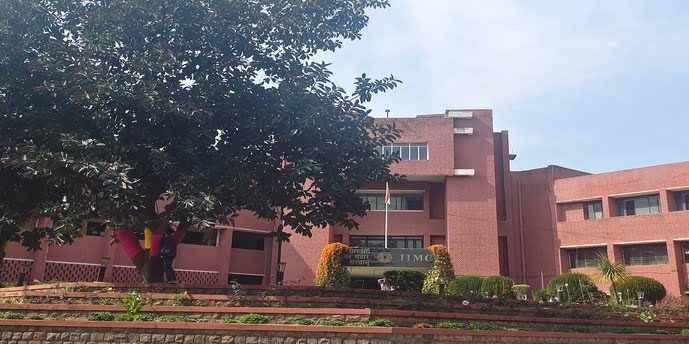IIMC plans to launch 5 masters’ programmes, allow lateral entry after diploma courses
Shradha Chettri | February 27, 2024 | 05:01 PM IST | 4 mins read
IIMC, now a deemed university, also plans to start PhD programmes, set up academic and executive council.

NEW DELHI: The Indian Institute of Mass Communication (IIMC), now a deemed-to-be university, plans to launch masters degree programmes in new media, media and communication governance, strategic communication, media business management and health communication.
The deemed-university tag also allows it to also offer PhD programmes which IIMC Delhi could launch in the 2024-25 academic session itself. It will also be exploring the opportunity of lateral entry for students who have graduated the diploma programme from the institute, according to an official.
A premier media and journalism studies institution, IIMC, with its headquarters in Delhi and five other regional centres, had been running nine diploma programmes in the domain of journalism, media and mass communication. Now, after receiving the deemed university status under a distinct category, it is headed for several changes – from academics to infrastructure, and to governance. Deemed-to-be universities are standalone institutions that have the power to grant degrees but were not set up through any act of parliament or state legislatures.
IIMC was inaugurated on August 17, 1965, by Indira Gandhi who was then the minister for information and broadcasting. It now has five regional centres – Aizawl in Mizoram, Dhenakanal in Odisha, Kottayam in Kerala, Amravati in Maharashtra, and at Jammu in Jammu and Kashmir.
IIMC new courses
Govind Singh, professor and dean, academics, told Careers360: “As part of the letter of intent we were required to start niche courses not offered anywhere. We came up with five such courses and are working on drafting a detailed syllabus.” However, IIMC may not be able to start all courses in the upcoming session itself and they will be divided and spread across all centres.
The university has for now estimated an intake of 30 students in each of the new programmes. Till now the institute had 582 seats across the country and is one of the few institutes where 56% of the candidates enrolled are women as against 44% men.
“We plan and hope to start the PhD programmes for the students soon,” added Singh.
Since 2023, Indian Institute of Mass Communication’s admissions have been through the Common University Entrance Test (CUET) PG and it has been admitting students through this centralised test. Earlier, the institute used to conduct its own entrance examination and interview.
IIMC: Diploma courses to degrees
IIMC offers nine diploma courses, such as English and Hindi journalism, radio and TV journalism, public relations and advertising, and digital media. The regional centres run journalism courses in Odia, Marathi, Malayalam, and Urdu. The diploma courses will remain but now, with the institute becoming deemed-to-be university,we will also be looking at lateral entry.
“We will also be looking at allowing lateral entry in the second year for students who have completed their diploma. However, this will take time and has to be discussed in our statutory bodies. We will also have to put a cap on the seats,” added Singh.
New IIMC changes: Faculty, administration
With the change in status, the university has now been sanctioned positions for recruiting 20 new assistant professors overall.
“A lot of faculty appointments have already taken place in the institute since 2019. New appointment of seven professors, six associate professors and two assistant professors were done and now our total count of permanent faculty is 24. We had actually asked for 40 new positions of assistant professors but for now, the ministry of finance has given sanction for 20 posts,” added Singh.
The university is now eagerly waiting for the appointment of a new vice-chancellor, registrar and other officers. Till now, a director general headed the institute.
Till now the IIMC Society, an autonomous body registered under the Societies Registration Act 1867, was running the institute. It is funded by the government through the ministry of information and broadcasting. The institute has a governing body, an executive council headed by a chairman, with the DG of the institute, representatives of the faculty and eminent media persons as members.
"We will now need to have an academic and executive council and incorporate all rules of the University Grants Commission,” said an official.
IIMC plans: Bigger campus, hostels
The campus now is built on about about five acres. With the university status coming along, the expansion process has already begun in about 15-acre space at the Aruna Asaf Ali Marg campus.
The new building will be used for academic purposes. We may also be able to expand the hostel facilities as we realise the crunch of it. The contract has already been given to CPWD,” added an official
Follow us for the latest education news on colleges and universities, admission, courses, exams, research, education policies, study abroad and more..
To get in touch, write to us at news@careers360.com.